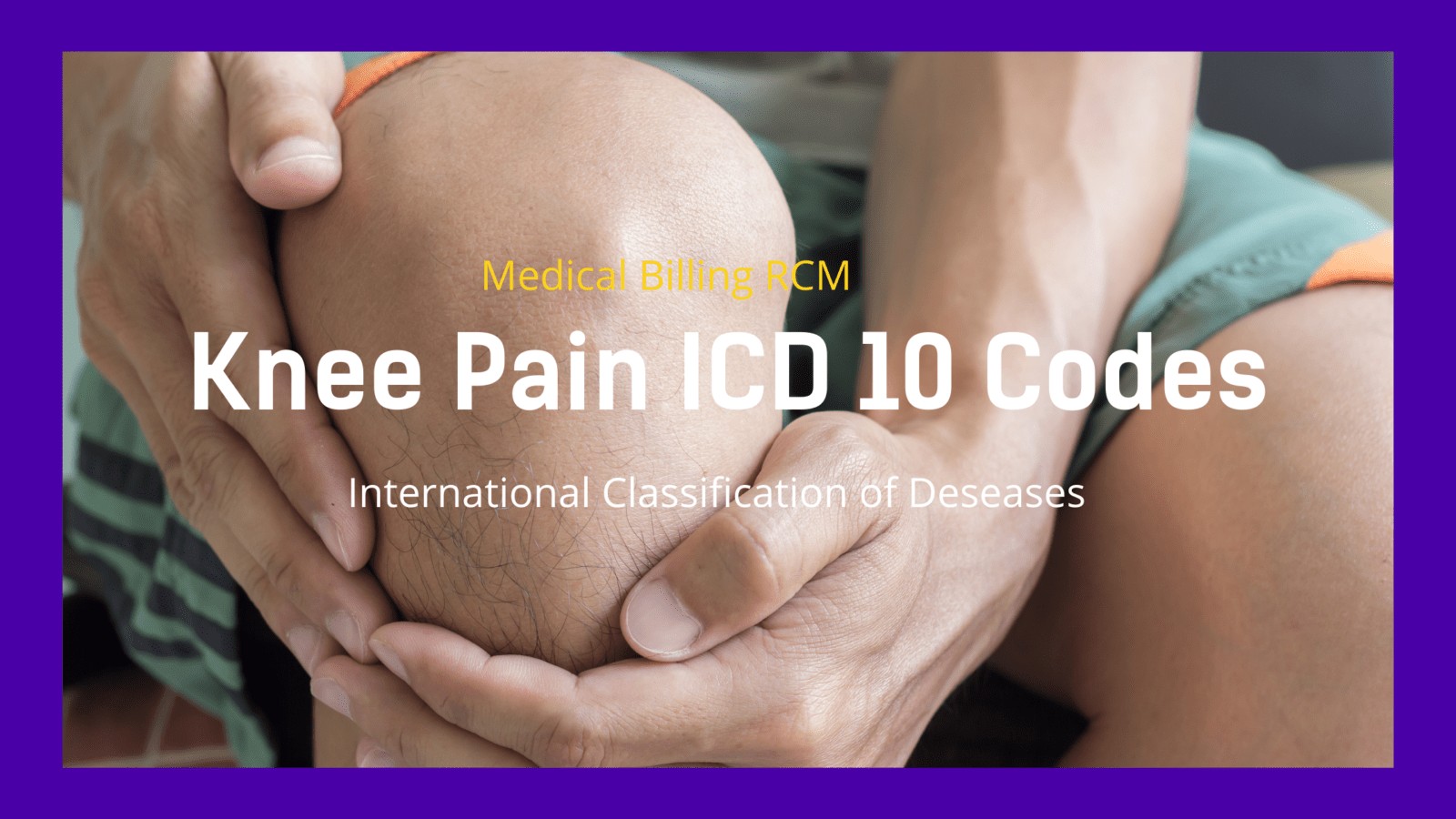The knee is a painful area for injury, particularly for athletes. There are four main ligaments that connect the knee, including the anteriorcruciate ligament (ACL) as well as the posterior cruciate ligament (PCL) and the medial collateral ligament (MCL) and the collateral ligament (LCL). The meniscus also is frequently damaged, which causes knee pain. Other reasons for knee pain are Osgood-Schlatter Disorder and Adolescent Knee Pain. The list of Pain in knees ICD 10 updated as below table:
ACL Injury
The ACL extends from the front of the tibia, and extends to an oblique part of the femur. The structure stops excessive rearward motion of the femur over the tibia. The ACL tends to tear when an athlete alters their direction quickly or slows down after running, or fails to land correctly after a jump. These kinds of injuries are frequent among players who ski, play basketball or play football. The pain caused by an injured ACL is classified as moderate or severe.
PCL injury
PCL injuries are more uncommon than ACL injuries. The PCL is most often damaged when an athlete is hit with an injury to the lower leg’s front near the knee, or suffers an unintentional slip on the field.
MCL Injury
The majority of injuries to the MCL result from an impact directly on the outside knee. Sportsmen who play football or soccer are more at risk of this kind of injury. The MCL is the area that extends starting from the knee’s top until the femur’s end in the inner part of the knee.
LCL Injury
The LCL connects the top of the femur and at the very top of fibula (the smaller shin bone). It is situated at the top of the outer part of your knee. The LCL helps prevent excessive side-to-side movements within the knee joint.
ICD 10 Codes for Knee Pain:
| M00-M99 | ICD 10 code range for Diseases of the musculoskeletal system and connecting tissues |
| M20-M25 | ICD 10 code range for Other joint disorders |
| M25 | ICD 10 code range for Other joint disorders, not elsewhere classified |
| M25.5 | ICD 10 code range for Pain in joint |
| ICD Code | Description |
| M25.541 | joints of right-hand Pain |
| M25.542 | joints of left-hand Pain |
| M25.549 | Pain in joints of unspecified hand |
| M25.55 | Hip pain |
| M25.551 | Right hip pain |
| M25.552 | left hip Pain |
| M25.559 | Pain in the unspecified hip |
| M25.56 | knee Pain |
| M25.561 | Pain in the right knee |
| M25.562 | Pain in the left knee |
| M25.569 | Pain in the unspecified knee |
| M25.57 | Pain in ankle and joints of the foot |
| M25.571 | Pain in right ankle and joints of the right foot |
| M25.572 | Pain in left ankle and joints of left foot |
| M25.579 | Unspecified ankle and joints of unspecified foot pain |
| M25.59 | Pain in other specified joint |
| M25.6 | Stiffness of joint, not elsewhere classified |
| M25.60 | Stiffness of unspecified joint, not elsewhere classified |
| M25.61 | Stiffness of shoulder, not elsewhere classified |
| M25.611 | Stiffness of right shoulder, not elsewhere classified |
| M25.612 | Stiffness of left shoulder, not elsewhere classified |
Symptoms:
The symptoms of knee pain are mentioned as below,
- joint pain in lower leg
- joint pain in knee less than three months
- joint pain of the lower leg
- Knee joint pain
- Knee pain
- Patellofemoral syndrome
The list of pain in knees ICD 10 codes updated as per latest information gathered from authorized resources like AMA (American Medical Association), CMS (Centre for Medicare and Medicaid Services), and other International Classification of Desease websites.
Related Articles:
The author and contributor of this blog "NSingh" is working in Medical Billing and Coding since 2010. He is MBA in marketing and Having vaste experience in different scopes of Medical Billing and Coding as AR-Follow-up, Payment Posting, Charge posting, Coding, etc.

